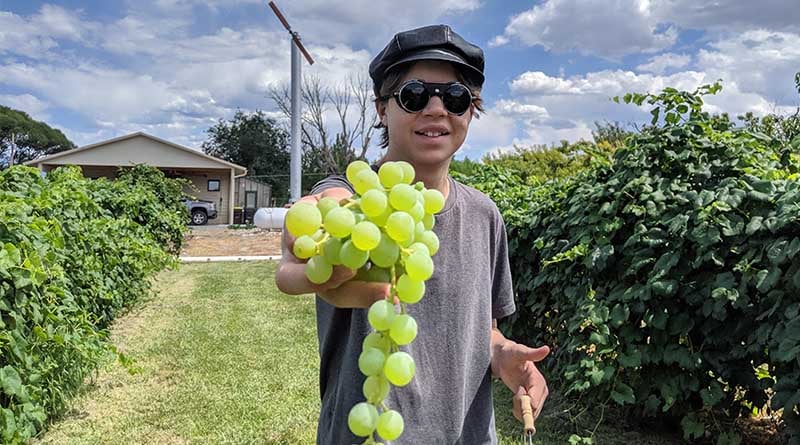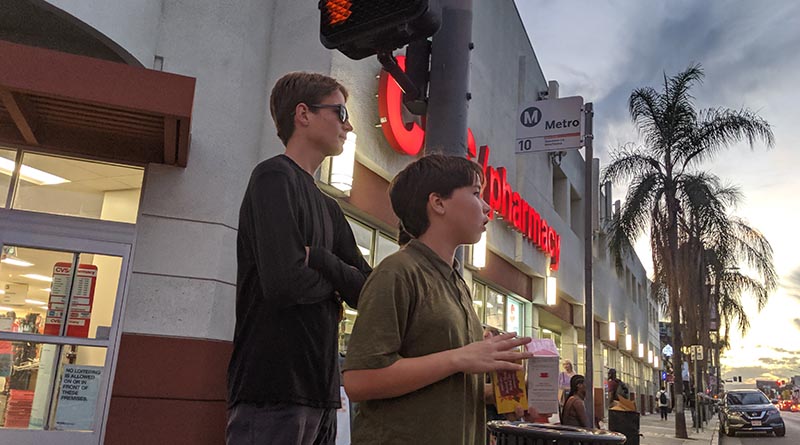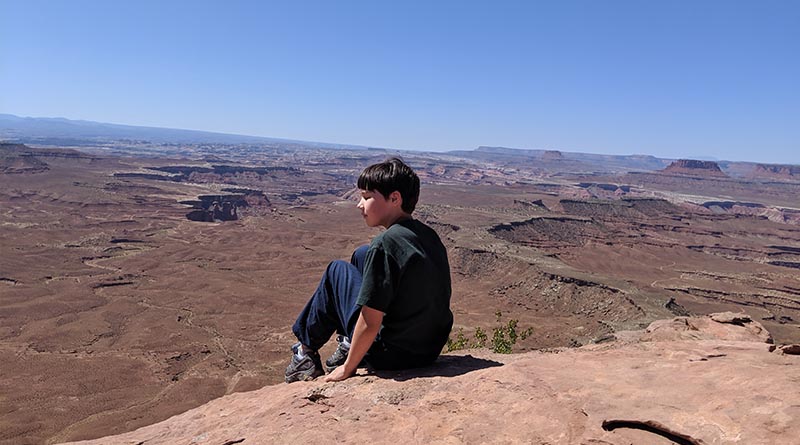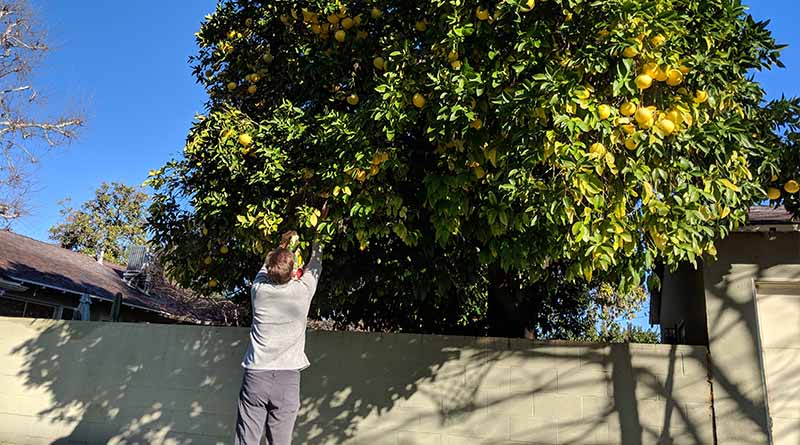It’s harvest time in western Colorado — the perfect time for a fruit safari.
A what? OK, so “fruit” may not be the first thing that comes to mind when you think of Colorado. And the western slope of the Centennial State is so different from the rest of the state that you’d think you were in Utah or Arizona anyway.
But in September and October, this place is a fruitapalooza of apricots, apples, grapes, peaches, pears and plums. You can spend a Saturday afternoon canvassing the farms near Grand Junction and discover some of the tastiest produce this side of the Rockies.
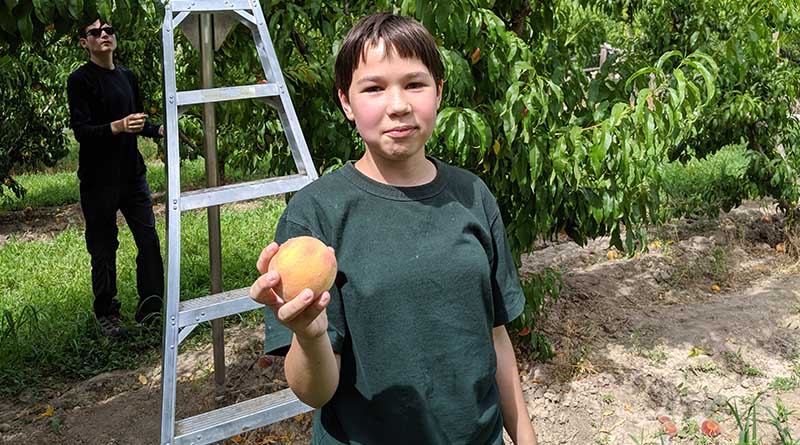
How one sign changed everything
We planned to spend a few weeks hiking and rafting in western Colorado, but one sign changed everything. As we drove through Palisade, under the shadow of the Grand Mesa on Interstate 70, I saw the signs advertising “famous” Palisade Peaches, which were just coming into season.
“Peaches!,” my 12-year-old daughter exclaimed, pointing at the rows of trees unfolding above the Colorado River.
My three teenagers and I love fruit — especially picking our own — so we knew what to do without saying a word. And just like that, our plans to go hiking and rafting for the next few weeks were detoured by fresh produce.
It turns out Palisade is in Colorado’s “banana belt,” which has ideal growing conditions for fruit, with a 182-day growing season and plenty of sunshine.
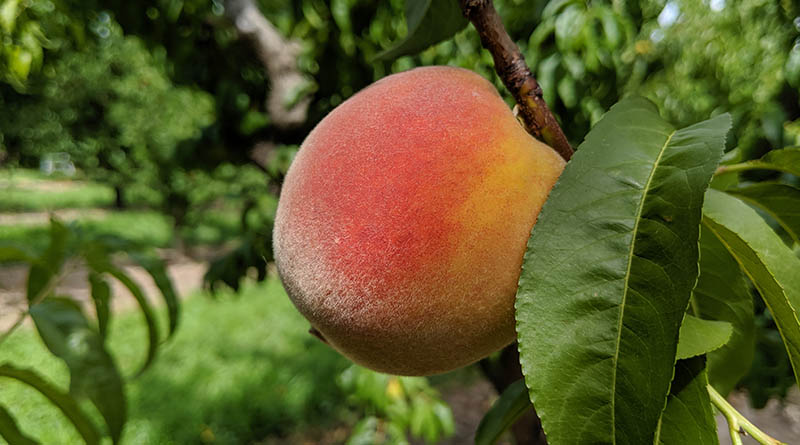
Welcome to Fruita
I’d found a small Vrbo vacation rental in nearby Fruita, Colo., for our stay. The name should have tipped us off about the real star of western Colorado. Fruita has a lively downtown with coffee shops and stores where you can rent mountain bikes. Oh, and there’s fruit, of course. Every other home, it seemed, had a tree in the front yard with ripening apples or apricots. The fruit fell faster than they could pick it up. No one cared if we lingered in their front yard, pulling fruit off their trees. In fact, they seemed grateful that they had one less thing to clean up. (Note: You can pick fruit without permission if the tree crosses the property line.)
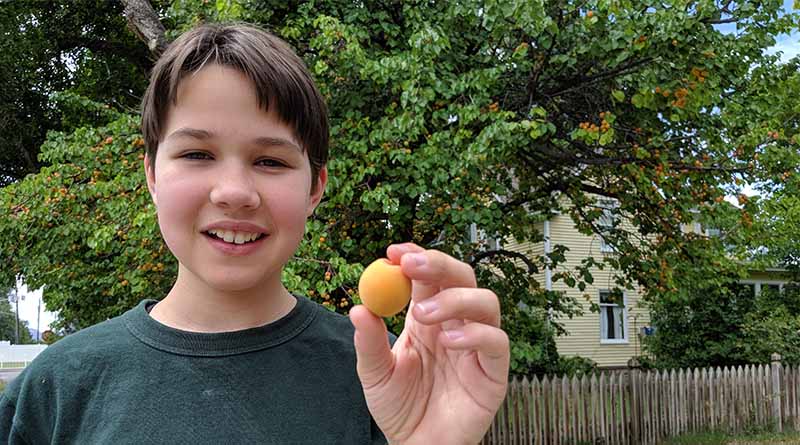
Life’s just peachy in Palisade
Within a day of arriving in Fruita, we made the half-hour pilgrimage back to Palisade to find peaches. There are plenty of fruit stands that promise you the finest peaches in Colorado, but we wanted to pick them ourselves. We stumbled upon Green Barn Fruit Company on a quiet Saturday afternoon.
“Could we take a look around?” I asked a woman at the counter. We weren’t ready to commit to anything.
“I’ll give you a tour,” she offered.
Green Barn is on a hill overlooking the Colorado River. It’s a million-dollar view of Palisade and the interstate highway, with the precarious-looking boulders leading up to the Mancos Shale and Mount Garfield in the distance. As we strolled through the rows of trees, I plucked a random peach. It was warm to the touch and fuzzy. I took a cautious bite and was rewarded with the light, sweet flavor of an early-season peach. I handed the peach to my 14-year-old son.
Simply the best
“These are the best,” he said. He began filling our basket.
For the next month, we consumed a box of Palisade peaches every week. The kids ate them in their breakfast cereal, as a snack, and as a meal. Expensive? Hang on — I have a secret that will help you save a little money when you’re on a fruit safari.
Peaches and apricots aren’t the only things you can harvest in western Colorado. At Fruit Basket Orchards, another U-pick establishment in Palisade, we found tart green grapes and Macintosh apples. I was excited about the Macs because they’re my favorite apple and they’ve disappeared from grocery stores lately. These apples didn’t disappoint. By late August, they were almost perfect green-and-red and just on the tart side.
Talk to enough people and they’ll tell you a story about a farming community trying to remain relevant in the 21st century. Yes, developers covet the million-dollar views. Grapes — and wineries — are more profitable than peaches and attract a more affluent clientele. So more of them are popping up. But the old-timers remember when this part of western Colorado was all about the fruit. The fruit safari is a terrific way to preserve those memories.
How to save money on a fruit safari
Fruit stands dot the roadside in Palisade, each claiming to have the best produce. I didn’t have time to sample all of the fruit, but a lot of it is really excellent. Mid to late August is a terrific time to try the fruit. Most Palisade fruit stands will allow you to sample their produce. The most generous ones offer a full piece of fruit.
Ball Fruit on the east end of Palisade offered fruit samples with no apparent limits, which we really liked. They also had delicious peaches. When we balked at paying more than $20 for a box, one of the proprietors shared a secret. Ask for the “number two” peaches. Those are the ones with slight imperfections. They taste just as good as their best peaches, with a cosmetic flaw or two.
At just $10 a box, the number twos were a bargain. Each cardboard box contained about 13 pounds worth of freshly harvested fruit. On our third visit, they even offered us a “friends and family” discount that lowered our price to $8. And that’s how we lived off Palisade peaches for almost an entire month while we stayed in western Colorado.
There’s a lot more to do here than eat peaches. From rafting the Colorado River to hiking Colorado National Monument, there’s no shortage of fun family activities. But the fruit safari, like the fruit itself, has a limited shelf life. I don’t know how much longer it’ll be with us.
Is this what it felt like to visit Southern California in the 1940s, when there were far more orange groves than homes? If someone had urged me to see the citrus farms before they disappeared, would I have gone? Would I have taken the kids? I’d like to think so.
